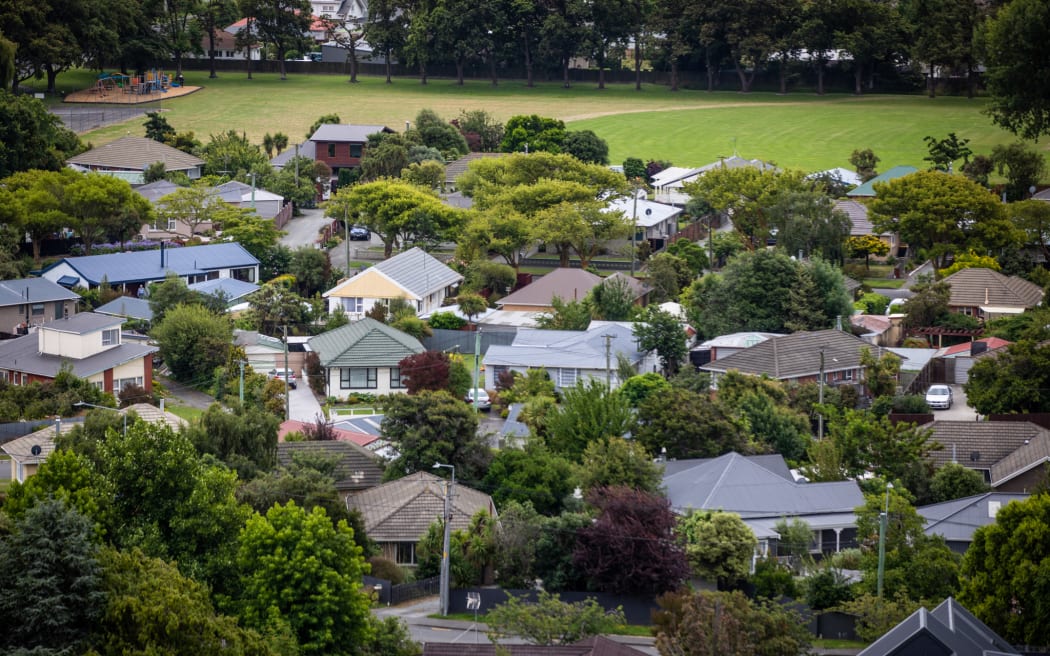
Housing market slump, biggest sales decline in 40 years
As the housing market slumps, the largest sales decline in nearly 40 years has been recorded. According to CoreLogic NZ data, up to February of this year, 60,859 real estate properties were sold, the lowest number in 12 months since October 1983. In February, there were approximately 4,100 sales, the lowest number since 1981. Kelvin Davidson, the senior economist of real estate at CoreLogic NZ, said these figures reflect recent rate hikes and strict lending regulations. Considering that unemployment rates remain low, Davidson said there are hardly any sellers rushing to sell, and buyers who have secured finances know that they can afford to wait and watch the abundant list of houses for sale and falling prices.
<Withdrawal of first-time homebuyers>
Kelvin Davidson said this drop in housing sales could be a sign that first-time homebuyers are starting to withdraw from the market. Some people are waiting for housing prices to fall further, and high mortgage rates are also affecting the market, he evaluated. First-time homebuyers accounted for 24% of the market, while those who had previously bought homes accounted for 27%. Interestingly, approximately 15% of home purchases last month were made by cash buyers who owned multiple properties, and this type of buyer has shown a record occupancy rate.
<Declining housing prices>
In February, real estate values fell by 1% compared to the previous month, 1.5% in the past three months, and 8.9% compared to the previous year.
Kelvin Davidson suggested that the prediction of an economic downturn indicates that housing prices could hit bottom at the end of the year. He said that if mortgage rates start to drop, net migration continues to increase, and investors start to re-enter, the housing market could hit bottom and show opportunities for recovery.
One of the things that will affect the housing market in the future is the labor market, and he predicted that if high employment levels can be maintained, it will be okay, but an overall situation of unemployment will be a new headwind for the housing market.
Housing prices have dropped almost 20% from their peak in Wellington, while Christchurch has only seen a 4.7% drop since its peak.
Rents in Auckland also recorded a 0.8% annual decline at $583 per week, while Wellington recorded a 3.7% decline at $595 per week.

주택시장 침체, 40년만에 판매 부진 최대
주택 시장이 침체되면서 거의 40년만에 가장 큰 판매 부진을 기록했다.
CoreLogic NZ 수치에 따르면 올해 2월까지 60,859채의 부동산이 판매되었으며 이는 1983년 10월 이후 12개월 동안 가장 낮은 수치이다.
2월에는 약 4,100건의 판매가 있었는데 이는 1981년 이후 가장 낮은 수치였다.
CoreLogic NZ의 수석 부동산 경제학자인 켈빈 데이비슨은 이러한 수치가 최근 금리 인상과 엄격한 대출 규정을 반영한 것이라고 말했다.
그는 실업률이 여전히 낮다는 점을 감안할 때 매도를 서두르는 판매자는 거의 없으며, 재정을 확보한 구매자들은 주택 판매 리스트가 풍부하고 가격이 하락하는 동안 관망할 수 있다는 것을 알고 있다고 그는 말했다.
<첫 주택 구매자의 철수>
켈빈 데이비슨은 이같은 주택 판매 하락은 첫 주택 구매자들이 시장에서 물러나기 시작했다는 징후일 수 있다고 말했다.
그는 어떤 사람들은 주택 가격이 더 떨어지기를 기다리며 뒤로 물러난 상태이고, 높은 모기지 금리 또한 영향을 미치고 있다고 평가했다.
첫 주택 구매자는 시장의 24%를 차지했으며, 이전에 주택 구입을 한 적이 있는 사람의 주택 구매는 27%를 차지했다.
흥미롭게도 지난 달 주택 구매의 약 15%가 여러 부동산을 소유한 현금 구매자에 의해 이루어졌으며 이러한 유형의 구매자가 기록적인 점유율을 보이고 있다.
<하락하는 주택 가격>
2월 부동산 가치는 전월 대비 1%, 지난 3개월 동안 1.5%, 전년 대비 8.9% 하락했다.
켈빈 데이비슨은 경기 침체 예측은 주택 가격이 연말에 바닥을 칠 수 있음을 시사한다고 말했다.
그는 만약 모기지 금리가 낮아지기 시작하고 순 이주가 계속 증가하고 투자자들이 다시 나서기 시작한다면 주택 가격 하락이 바닥을 치고 반등의 기회를 보일 수 있을 것이라고 전했다.
향후 주택 시장에 영향을 미치는 것 중 하나는 노동 시장이 될 것이고, 높은 고용 상태를 유지할 수 있다면 괜찮지만 전면적인 실직 상황은 주택 시장에 새로운 역풍이 될 것이라고 그는 전망했다.
주택 가격은 웰링턴은 최고 가격에서 거의 20% 하락한 반면 크라이스트처치는 최고점 이후 4.7% 하락에 그쳤다.
임대료도 오클랜드는 연간 0.8% 하락한 주당 583달러, 웰링턴은 3.7% 하락한 주당 595달러를 기록했다.
